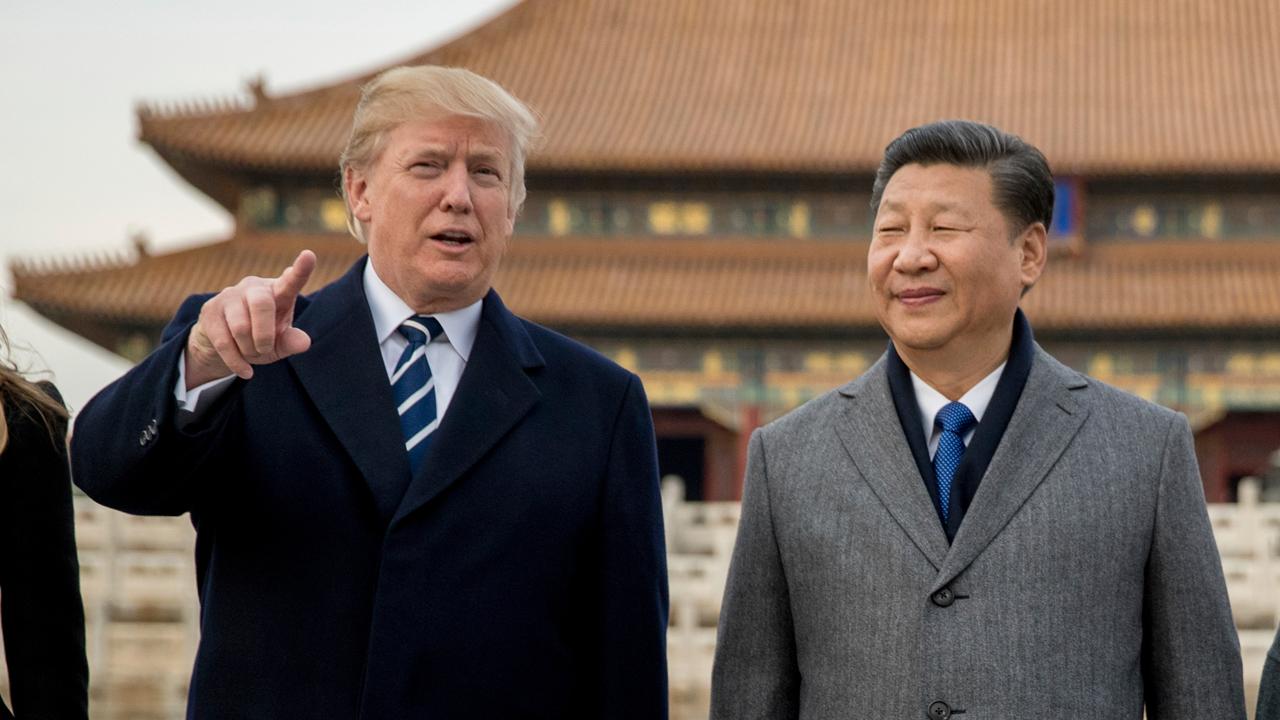China offers official reassurance on trade talks with US
Negotiating teams have maintained close communication amid recent rise in tensions, Beijing says
China’s trade negotiations with the U.S. remain on track, Beijing said, offering official reassurance after tensions flared between the world’s two biggest economies over human-rights issues in China.
The negotiating teams from both sides have maintained close communications, China’s Commerce Ministry said Thursday, though it didn’t provide details on progress.The recent strain had spooked investors and stoked concerns about the global economic outlook.“If China and the U.S. strike a phase-one deal, relevant tariffs should be reduced,” said Commerce Ministry spokesman Gao Feng, referring to a proposed interim agreement the two sides are trying to reach.
During the past few days, though, officials in the U.S. have become less optimistic about a deal. The two nations remain at odds over the value of U.S. farm goods Beijing would buy, with President Trump looking for $40 billion to $50 billion a year within two years.That is an enormous increase from the $8.6 billion last year—and twice as much as China bought from the U.S. before the trade war began in earnest in 2018.
The Trump administration wants Beijing to publicly state its purchasing plans and not condition them on market circumstances or China’s trade obligations, people familiar with the discussions said. Beijing is reluctant to make that pledge because it might have to divert purchases from other trading partners that are likely to object.
WILBUR ROSS" CHINA TRADE WAR ISN'T HURTING AMERICANS
Additionally, the two sides haven’t yet agreed on how deep a reduction in tariffs the U.S. would make. Currently, the U.S. has tariffs on about $360 billion of Chinese goods. Unless there is a deal by Dec. 15, the U.S. is threatening 15 percent tariffs on $165 billion more in Chinese imports.
While the U.S. is willing to skip the next tariff increase, Mr. Trump and U.S. Trade Representative Robert Lighthizer are reluctant to start scrapping tariffs. Their willingness to do so depends largely on how much in farm goods Beijing will buy and how firmly it will commit to the purchases, say the people familiar with the talks.Tensions between the U.S. and China rose in recent days because of two U.S. bills in Congress supporting human rights in Hong Kong and in China’s western region of Xinjiang.
GET FOX BUSINESS ON THE GO BY CLICKING HERE
Both measure triggered objections from Beijing and vows of retaliation.The state-run tabloid Global Times said this week that China would soon publish an “unreliable entity list,” which could lead to sanctions against U.S. companies, organizations and individuals.
The newspaper said on Twitter that the Xinjiang bill would harm China’s interests and prompt Beijing to speed up the rollout of a blacklist of foreign entities that it says hurt Chinese businesses and national security.In a separate squabble, a person familiar with Chinese Foreign Ministry policy said Thursday that Beijing is now requiring U.S. diplomats to inform the ministry five days in advance of meeting with Chinese local government officials and research or educational institutions.
The new rule is retaliation for restrictions put on Chinese diplomats in the U.S. and earlier was reported by a Chinese publication called the Paper.Reached late Thursday, a U.S. Embassy spokesman in Beijing declined to comment.
The U.S. rights legislation, which would require sanctions against Chinese officials involved in the repression of Uighur Muslims in the far-western Chinese region of Xinjiang, was passed by the House of Representatives this week and must be reconciled with a bill the Senate previously passed before it can be sent to Mr. Trump to sign into law.
Last week, Mr. Trump signed a bill designed to show solidarity with pro-democracy protesters in Hong Kong.
In Thursday’s weekly briefing, Mr. Gao didn’t provide further comment on the U.S. legislation and declined to give a time frame for any foreign entity blacklist.China initially threatened to publish the company blacklist in May, shortly after the U.S. blacklisted Huawei Technologies Co., limiting the Chinese telecom-gear maker’s ability to obtain American technology.
US TRADE POLICY ON THE MINDS OF VOTERS
On Tuesday, President Trump suggested that trade talks with China could continue well into next year. The Dow Jones Industrial Average reacted with its biggest single-day decline since early October, even though some investors and analysts interpreted Mr. Trump’s comments as an effort to gain leverage before Dec. 15, when new tariffs on consumers are set to take effect.
A day later, Mr. Trump said the trade talks were going “very well.”
Mr. Gao declined to comment on whether the two nations could make a deal before that deadline, but he reiterated that some tariffs should be rolled back for the two countries to reach a phase-one deal.
The phase-one deal would include Chinese pledges to buy billions of dollars in U.S. farm goods, liberalize its financial sector and strengthen its intellectual-property protection.
CLICK HERE TO READ MORE ON FOX BUSINESS
But the deal would likely cover only a portion of the U.S. complaints against China, leaving out sticking points like China’s coercion of technology transfers from U.S. companies and government subsidies for state-owned companies, U.S. officials have said.
—Grace Zhu and Eva Dou in Beijing and Bob Davis in Washington




















